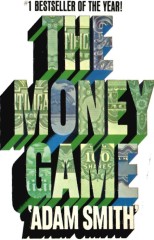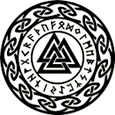
Author : Smith Adam
Title : The Money Game
Year : 1976
Link download : Smith_Adam_-_The_Money_Game.zip
WHY DID THE MASTER SAY "GAME"? The world is not the way they tell you it is. Unconsciously we know this because we have ali been immunized by growing up in the United States. The little girl watching television asks will she really get the part in the spring play if she uses Listerine, and ber good mother says no, darling, that is just the commercial. It is not long before the moppets figure out that parents have commercials of their own--commercials to keep one quiet, commercials to get one to eat, and so on. But parents-indeed ali of us-are in tum being given a whole variety of commercials that do not seem to be commercials. Silver is in short supply, and the Treasury is running out and begins to fear a run. So the Treasury tells the New York Times that, what with one thing and another, there is enough silver for twenty years. Those who listened to the commercial sat quietly, expecting to get the part in the spring play, and the cynics went and ran ali the silver out of the Treasury and the priee went through the roof. This is a book about image and reality and identity and anxiety and money. If that doesn't scare you off, nothing will. It isn't really that serious and there is a message in here from Lord Keynes to that effect. You already know about image and reality, and you probably already know ail about identity and anxiety, and everybody knows about money, so ali we are doing is stirring them up together. In this introduction, I have two things to tell you. One is who I am not and the other is the single sentence, the illumine, the apple falling on the head, that led me to the attitude expressed in the first sentence, that the world is not the way they tell you it is. I am not, of course, Adam Smith. Mr. Smith lies in the churchyard at Canongate, his tombstone, written by him self, identifying him as the author of The Wealth of Nations; and he bas been there since he died in 1790, rich in respect and honors, having made himself immortal as the first great free-market economist in ali the texts of economie history. Mr. Smith did not think of himself as an economist but as a moral philosopher. ''To what purpose," he asked in The Theory of Moral Sentiments, "is ali the toi! and bustle of this world? What is the end of avarice and ambition, of the pursuit of wealth, of power, and preeminence?" I like that, but it wasn't because of it that I picked the name Adam Smith as a pseudonym. That was a happy accident. Not so long ago I was asked to write something about Wall Street in a new publication, and I bad what I thought was a bright idea. There is not very much written about Wall Street that Wall Streeters themselves believe. (fhe Street runs on oral-aura! communication anyway, like McLuhan's global village.) The reason for this is that the writers about the Street are Outside, and Wall Street tells them more or less what it wants. Wall Street is weil paid, and the writers aren't, and when the writers leam enough they get offered jobs in Wall Street and off they go, perhaps satisfying their creative urge by working on a black comedy on the weekends. Then they are lnside and rich and don't write about Wall Street any more. Writers who really want to write would rather ride with the President in Air Force One, or sit in the Polo Lounge of the Beverly Hills Hotel with sorne movie star. Such writers are heroes at the next dinner party. Wall Street writers are never heroes at dinner parties because any broker or fund manager knows as much Street gossip as they do. There are, of course, W al! Street writers, as opposed to writers on Wall Street, and sorne of them are essayists as good as Addison, Steele, and writers writing anywhere. Bradbury Thurlow, for example, writes a weekly market letter which bas the grace of a Mozart sonata. But these essays are musings on the scene related to particular stocks; the coda of the essay is a therefore, as if the essay were an argument: therefore should we now huy Telephone, Q.E.D., so have I proved. What is really going on is very difficult to report except for an insider. (B.C. Forbes, the founder of the magazine of that name, knew this. He noted that reporters with notebooks and pencils bad to wait by the kitchen of the old Waldorf, so he got himself top hat, striped pants, and circulated with the tycoons.) But for an insider, there are problems, namely, how do you keep your friends from getting irritated if you are putting the Breughel scene to paper? My bright idea was to use a pseudonym and to change the names and numbers of my friends, the players. A fund manager will tell another fund manager the innermost state of his emotions, the condition of his marriage, and even his purchases and sales, but he will not tell a broker or a magazine or any outsider who is likely not to understand him completely. I figured if we were not too solemn, everybody at Oscar's, off Wall Street hard by Lehman Brothers, would get into the spirit of the game. Pseudonyms are not much used in this country. Mr. George Kennan, upon leaving the State Department, did sign his famous article on containment in Foreign Affairs as "Mr. X." But th en he went right back to being George Kennan again. In England, where on sorne levels literacy seems to arrive at birth, the business of pseudonyms bas gone on quite a long time. In the early nineteenth century, if something in the marketplace was bugging a merchant banker, he did not hire a P .R. man but wrote his own polemic, signed it "Cato" or "Justinian" and dispatched it. If a governor of the Bank of England wanted to loose a salvo at his opponents, he could sign it "Plautus" or "Seneca" and be as acid as he wanted. He knew he would get rapt attention, because his expertise was so obvious. Sorne of this still survives in England, but often it is just so that "Justinian" can be severa! people. (I am not saying he is, and for ali you know, six of us are Adam Smith.) So I bad "Procrustes" ali picked out. Procrustes, as you remember, was a highwayman of Attica who placed his victims on a bed of iron. If they were too short, he stretched them, and if they were too long, he chopped off their feet. lt seemed appropriate for Wall Street. The new publication did not come to pass, and the editor of New York magazine, in the Sunday World Journal, scooped up my sample and ran it. (The W orld Journal was a newspaper in New York which has since joined its ancestors.) "I bad to change your name," said this editor on the phone. "They wouldn't believe here that anyone was named Procrustes; just plain Procrustes sounds too much like a pseudonym, and we don't use pseudonyms. So I put down the first name I could remember that would fit. I think it was Adam Smith." So theo there was Adam Smith, my Sunday recreation, and it ali became too much fun to stop. First of ali, when the situations I described were successful, Wall Street filled in ali the details of my sketches. Take Poor Grenville, a fund manager I described who bet the wrong way. He bad just gotten hirnself a nice $25 million cushion of cash in his fund when the market tumed around and ran away without him. Everybody knew Poor Grenville, only-it was pointed out to me-Poor Grenville wasn't caught with $25 million but with $19 million or with $33 million and his hair wasn't blond, it was red or it was brown. Otherwise it was Poor Grenville ali right. I have since met six Poor Grenvilles and there are more coming into town ali the tirne. Then there were the Larnont Cranston aspects of it ali. (If you don't remember Lamont Cranston, the Shadow, and the secrets he leamed in the Orient which enabled hiro to pass invisibly arnong men, we must not be in the sarne generation.) I was at a cocktail party once and I joined a respectful circle listening to a New York Times reporter I bad never met. The reporter said he knew Adam Smith weil and bad for years, and he told us ali about hirn. I listened raptly. In another instance, my seat-mate on a cross-country jet introduced hirnself, and we got to talking, and he told me about Adam. Smith. When I seemed to be irnpressed, he said he knew Adam Smith but he couldn't tell me who he was, because Smith bad sworn birn to secrecy. lt's great. lt's like being the Fugitive with nobody chasing you. ...

Tourney Phillip - What I saw that day
Authors : Tourney Phillip F. - Glenn Mark Title : What I saw that day Year : 2011 Link download :...














